Magnesium: Widespread Deficiency with Deadly Consequences
According to the National Institutes of Health: “Magnesium is needed for more than 300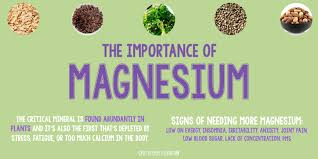 biochemical reactions in the body. It helps maintain normal muscle and nerve function, keeps heart rhythm steady, supports a healthy immune system, and keeps bones strong. Magnesium also helps regulate blood sugar levels, promotes normal blood pressure, and is known to be involved in energy metabolism and protein synthesis. There is an increased interest in the role of magnesium in preventing and managing disorders such as hypertension, cardiovascular disease, and diabetes.”1
biochemical reactions in the body. It helps maintain normal muscle and nerve function, keeps heart rhythm steady, supports a healthy immune system, and keeps bones strong. Magnesium also helps regulate blood sugar levels, promotes normal blood pressure, and is known to be involved in energy metabolism and protein synthesis. There is an increased interest in the role of magnesium in preventing and managing disorders such as hypertension, cardiovascular disease, and diabetes.”1
The federal government recommends that adult men consume 420 mg of magnesium a day, but admits that many Americans do not obtain this amount.1
Magnesium is a very low-cost dietary supplement. The fact that so many are magnesium-deficient is a further indictment of today’s broken health care system.
For the Highest Quality Supplements Since 1980, Go To : Magnesium Products
Magnesium: What Is It?
 Magnesium is the fourth most abundant mineral in the body and is essential to good health. Approximately 50% of total body magnesium is found in bone. The other half is found predominantly inside cells of body tissues and organs. Only 1% of magnesium is found in blood, but the body works very hard to keep blood levels of magnesium constant.1
Magnesium is the fourth most abundant mineral in the body and is essential to good health. Approximately 50% of total body magnesium is found in bone. The other half is found predominantly inside cells of body tissues and organs. Only 1% of magnesium is found in blood, but the body works very hard to keep blood levels of magnesium constant.1
Magnesium is needed for more than 300 biochemical reactions in the body. It helps maintain normal muscle and nerve function, keeps heart rhythm steady, supports a healthy immune system, and keeps bones strong. Magnesium also helps regulate blood sugar levels, promotes normal blood pressure, and is known to be involved in energy metabolism and protein synthesis. There is an increased interest in the role of magnesium in preventing and managing disorders such as hypertension, cardiovascular disease, and diabetes.1-6 Dietary magnesium is absorbed in the small intestines. Magnesium is excreted through the kidneys.1
Metabolic Syndrome and Diabetes
An alarming number of Americans suffer from diabetes and metabolic syndrome— conditions of aberrant blood sugar metabolism associated with a greatly increased risk of cardiovascular disease. In fact, estimates suggest that 7% of the population have diabetes and more than 20% are affected by metabolic syndrome.7,8 Studies strongly suggest that magnesium may offer important protection against both metabolic syndrome and diabetes.
conditions of aberrant blood sugar metabolism associated with a greatly increased risk of cardiovascular disease. In fact, estimates suggest that 7% of the population have diabetes and more than 20% are affected by metabolic syndrome.7,8 Studies strongly suggest that magnesium may offer important protection against both metabolic syndrome and diabetes.
Metabolic syndrome is characterized by insulin resistance—the situation in which muscle, liver, or fat tissues cannot properly respond to insulin’s signal to bring glucose into cells. As a result, glucose and triglyceride levels rise in the blood, beneficial high-density lipoprotein (HDL) declines, and blood pressure rises. In a five-year-long epidemiological study of more than 1,000 healthy adults, scientists found that greater magnesium intake was linked with improved insulin sensitivity.
For the Highest Quality Supplements Since 1980, Go To : Magnesium Products
In another compelling study, scientists prospectively examined the relationship between magnesium intake and the development of metabolic syndrome and its components in healthy young adults. Nearly 5,000 Americans aged 18-30 were monitored through 15 years of follow-up. After adjustment for possible confounding factors, those in the highest quartile of magnesium intake had a 31% decreased risk of metabolic syndrome. Greater magnesium intake was also linked with a lower plasma glucose and weight circumference and higher high-density lipoprotein (HDL). The authors concluded that higher magnesium intake may offer protection against the epidemic of metabolic syndrome.10
According to a research review from Northwestern University, magnesium could address several components of metabolic syndrome by increasing levels of HDL, decreasing triglycerides, and favorably impacting glucose homeostasis, insulin action, and insulin secretion.2 Increased magnesium intake has also been linked with protection against hypertension, another component of the metabolic syndrome.2,11
A magnesium-rich diet abundant in foods such as spinach, almonds, and whole-wheat 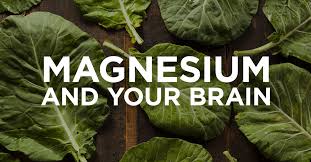 bread can substantially reduce the risk of developing type 2 diabetes, according to a report from Harvard University investigators. Researchers followed 85,000 women and 42,000 men for 18 and 12 years respectively, during which time 5,400 participants developed type 2 diabetes. Even in those at increased risk for diabetes based on risk factors such as excess weight, increasing age, little physical activity, and smoking, those with the highest levels of dietary magnesium intake reduced their risk of developing type 2 diabetes by up to 34%.3
bread can substantially reduce the risk of developing type 2 diabetes, according to a report from Harvard University investigators. Researchers followed 85,000 women and 42,000 men for 18 and 12 years respectively, during which time 5,400 participants developed type 2 diabetes. Even in those at increased risk for diabetes based on risk factors such as excess weight, increasing age, little physical activity, and smoking, those with the highest levels of dietary magnesium intake reduced their risk of developing type 2 diabetes by up to 34%.3
Magnesium deficiency has been linked with chronic diabetic complications such as retinopathy (eye disease), nephropathy (kidney disease), neuropathy (nerve disease), and foot ulcerations. These findings suggest that individuals with existing diabetes should pay very close attention to their magnesium status in order to avoid the long-term manifestations of the disease.12
WHAT YOU NEED TO KNOW: MAGNESIUM
- Magnesium is one of the most abundant minerals in the body, participating in hundreds of essential biochemical reactions. Yet many adults fail to consume enough magnesium, putting them at risk of a host of ailments.
- Compelling research shows that magnesium can help protect against metabolic syndrome and type 2 diabetes. Magnesium may help address individual components of metabolic syndrome such as low HDL and elevated blood pressure.
- Magnesium acts through numerous mechanisms to protect the cardiovascular system, such as preventing arrhythmia, improving congestive heart failure outcomes, and reducing inflammation.
- Intriguing studies suggest that magnesium could hold benefits for optimizing memory during aging.
- Supplementing with magnesium has been found to reduce the frequency and severity of migraine headaches. Intravenous magnesium can effectively relieve symptoms of acute migraine.
- At all stages of life, magnesium is crucial for healthy, strong bones.
- Other applications of magnesium include averting asthma and colon cancer and decreasing hyperactivity in children with ADHD.
- While magnesium is very safe, higher doses have been associated with gastrointestinal distress.
For the Highest Quality Supplements Since 1980, Go To : Magnesium Products
Cardiovascular Health
The benefits of magnesium for cardiovascular health are already extraordinary, given its  protective role against metabolic syndrome and diabetes, two major factors that threaten heart and vascular health. But its heart-healthy benefits do not end there—research reveals that magnesium may offer a wealth of other cardiovascular benefits.
protective role against metabolic syndrome and diabetes, two major factors that threaten heart and vascular health. But its heart-healthy benefits do not end there—research reveals that magnesium may offer a wealth of other cardiovascular benefits.
For example, the Honolulu Heart Program tracked the relationship between magnesium intake and the incidence of illness and death from coronary heart disease among Japanese men living in Hawaii. After adjustment for numerous cardiovascular disease risk factors, a lower level of magnesium intake increased the risk of coronary heart disease by 50-80%.4
Magnesium may further promote a healthy heart by supporting optimal cardiac rhythm. A study published in the American Journal of Clinical Nutrition reported that depleting magnesium from the diet of postmenopausal women led to an increased occurrence of abnormal heart rhythms (supraventricular ectopy).13
Supplementation with magnesium can prove life-saving in individuals with congestive heart failure, a condition in which weakened heart muscle is unable to pump enough blood to meet the body’s needs. In a controlled, double-blind study, 79 patients received either magnesium supplements or placebo, along with optimal cardiovascular medication, for one year. For the first month, the magnesium group received 6,000 mg magnesium orotate (providing 390 mg elemental magnesium), and during the following 11 months they received 3,000 mg magnesium orotate (containing 195 mg elemental magnesium).
Only 52% of the placebo group was still alive at one year, compared with 76% of the magnesium group. Clinical symptoms improved in 39% of the magnesium recipients, while symptoms worsened in 56% of the placebo group. These findings suggest a powerful role for magnesium supplementation as an adjuvant therapy to improve survival and lessen symptoms for patients with congestive heart failure.14
Another recent study explored the relationship between magnesium and congestive heart failure. Investigators examined serum levels of magnesium and C-reactive protein (CRP, a marker of inflammation) in patients admitted to the hospital for congestive heart failure. They found that heart failure patients demonstrated higher baseline CRP levels and lower serum magnesium levels. Treating these patients with magnesium increased intracellular magnesium levels and decreased CRP, leading the researchers to conclude that magnesium treatment could improve the prognosis of congestive heart failure.15
Magnesium has been found to lower inflammation, decrease oxidative stress, and diminish endothelial dysfunction—all factors that underlie cardiovascular disease. Further, magnesium helps reduce platelet aggregation, which could help prevent the formation of dangerous blood clots.11
Clearly, maintaining optimal magnesium status is absolutely essential for safeguarding cardiovascular well-being in aging.
For the Highest Quality Supplements Since 1980, Go To : Magnesium Products
Memory Function
Massachusetts Institute of Technology researchers reported an exciting new role for  magnesium—maintaining memory function in middle age and even beyond. The research team discovered that magnesium regulates a key brain receptor essential to learning and memory.5
magnesium—maintaining memory function in middle age and even beyond. The research team discovered that magnesium regulates a key brain receptor essential to learning and memory.5
The authors wrote, “Our study shows that maintaining proper magnesium in the cerebrospinal fluid is essential for maintaining the plasticity of synapses. Since it is estimated that the majority of American adults consume less than the estimated average requirement of magnesium, it is possible that such a deficit may have detrimental effects, resulting in potential declines in memory function.”5
Plasticity (the ability to change) is critical to the brain’s ability to learn and remember. It is known aging or diseased brains lose plasticity. Decreased synaptic plasticity in the hippocampus (where short-term memory is stored), for example, may be the cause of forgetfulness that many of us experience as we age.
The researchers were especially interested in magnesium’s role in enhancing synaptic function. Increasing magnesium concentrations, said one of the researchers, “led to the largest increases of plasticity ever reported in scientific literature.”5 The findings suggest that a magnesium deficit may impair memory and learning ability, while a surplus or even the recommended daily allowances might improve cognitive function.
Magnesium may help support healthy memory through other mechanisms as well. Magnesium is required for the proper activity of many enzymes within brain cells that control cellular and memory functions, and also plays a role in neurotransmitter release.16 Scientists have also noted that magnesium helps speed the recovery of cognitive function following experimentally induced brain injury.17
Maintaining optimal magnesium levels might thus represent an important strategy for preventing or offsetting the memory decline that often accompanies aging.
Migraine Headaches
 Magnesium may help alleviate or prevent one of the most painful and debilitating conditions that can afflict adults—migraine headaches. Numerous studies strongly suggest that a person’s magnesium status may be associated with the severity and frequency of migraine headaches.
Magnesium may help alleviate or prevent one of the most painful and debilitating conditions that can afflict adults—migraine headaches. Numerous studies strongly suggest that a person’s magnesium status may be associated with the severity and frequency of migraine headaches.
“We know that 50% of all migraine sufferers are magnesium-deficient,” says Dr. Altura, PhD, professor of physiology, pharmacology and medicine at the SUNY Downstate Medical Center in Brooklyn, New York. Many factors play a role in magnesium deficiency. “Sixty percent of migraine patients have genetic variances that don’t allow them to effectively metabolize and transport magnesium well,” says Dr. Altura.
Intravenous infusion of magnesium results in rapid and sustained relief of an acute migraine in these patients.18 Dr. Altura and colleagues found that intravenous infusions of ionized magnesium brought about significant pain reduction in more than 80% of patients within 15 minutes of administration.19 In another study, Dr. Altura noted that magnesium infusion produced a complete elimination of migraine-induced symptoms such as nausea and photophobia (light sensitivity).20 (Intravenous magnesium infusion should be performed at a physician’s office or hospital.)
Magnesium works on the symptoms of migraines by relaxing blood vessels in the brain and inhibits the ability of calcium to constrict blood vessels.
Prevention is preferable to treatment, particularly when it comes to migraine headaches. Fortunately, oral supplementation with magnesium has been shown to reduce the frequency and duration of migraines.18,21 Magnesium even shows efficacy in preventing menstrual migraines, which occur in women of childbearing age and tend to be more frequent and disabling than non-menstrual migraines.22
And since lower magnesium levels have been correlated with more severe neurological symptoms when migraines do occur,21 there is a strong motivation for migraine-prone individuals to diligently consume plentiful magnesium.
For the Highest Quality Supplements Since 1980, Go To : Magnesium Products
Experts Agree Magnesium is Crucial for HealthThe fourth most abundant mineral in the body, magnesium is a co-factor in more than 300 life-sustaining enzymatic reactions, which is more than any other metal. From the heart to the bones, many of the body’s fundamental systems and structures depend on this mineral. According to Bernard Altura, magnesium helps maintain strong bones; helps control the heart’s neuromuscular activity and is needed for a regular heartbeat; reduces the risk of angina; helps regulate blood sugar levels and blood pressure within normal ranges; and maintains normal nervous system function. Magnesium Deficiency Common, Increases Disease RiskDespite magnesium’s role in maintaining proper health, data from the most recent National Health and Nutrition Examination Survey suggest that many Americans fail to consume recommended amounts of magnesium (420 mg for men, 320 mg for women).37 Magnesium deficits have been linked to diverse ailments such as asthma, anxiety, and heart disease. Interestingly, while many Americans do not get enough magnesium, symptoms of magnesium deficiency are not often seen in the United States. “Magnesium is needed for so many different physiological processes that the body has a way of regulating its stores. So, while it is true that most Americans do not get the [recommended daily intake], it doesn’t show up immediately as magnesium deficiency,” explains Katherine L. Tucker, PhD, professor of nutritional epidemiology at the Friedman School of Nutrition Science and Policy at Tufts University. Dr. Tucker cautions that while outward signs of magnesium are rare, there are consequences when magnesium is found at sub optimal levels. “It causes deficiencies in the body that only show up over time. When the cells are not getting enough [magnesium] to function optimally they wear down, which can lead to several different disease states in the body.” “Those of us working in the field [of magnesium research] feel there are harmful consequences [that result] from a shortage of magnesium including high blood pressure, osteoporosis, and atherosclerosis,” says Robert Rude, MD of the University of Southern California’s Keck School of Medicine. |
For the Highest Quality Supplements Since 1980, Go To : Magnesium Products
Healthy Bones
Magnesium is one of the minerals that comprise bone matrix and helps make and keep  bones strong and healthy. In fact, magnesium is a critical element needed to guard against osteoporosis, the decrease in bone mass and bone density that increases the risk and/or incidence of fracture. As the magnesium content of bone mineral decreases, bone crystals become larger and more brittle.
bones strong and healthy. In fact, magnesium is a critical element needed to guard against osteoporosis, the decrease in bone mass and bone density that increases the risk and/or incidence of fracture. As the magnesium content of bone mineral decreases, bone crystals become larger and more brittle.
In two separate studies published in the American Journal of Clinical Nutrition, researchers found that inadequate magnesium intake lowered bone minerals, whereas sufficient magnesium intake through dietary sources increased bone mineral density, thus potentially reducing the risk of osteoporosis and related bone fractures.6,23 “In both studies, we found that the higher the intake [of magnesium], the higher the level of bone mineral density,” says Katherine L. Tucker, PhD, professor of nutritional epidemiology at the Friedman School of Nutrition Science and Policy at Tufts University. Magnesium is needed for the proper utilization of vitamin D and calcium, both of which are crucial for healthy bones.
Magnesium and Critical Illness
An article published in the Journal of Intensive Care Medicine suggests that magnesium deficiency can exacerbate many life-threatening conditions. “Magnesium deficiency commonly occurs in critical illness and correlates with a higher mortality and worse clinical outcome in the intensive care unit,” the authors noted. Evidence from clinical trials supports the idea that magnesium deficiency likely plays a role in acute coronary syndromes, hypokalemia (a potentially fatal condition in which the body fails to maintain adequate potassium levels), tetany (a combination of symptoms that results from abnormally low calcium levels), and acute cerebral ischemia (insufficient blood flow that occurs after any number of diseases including stroke).28 Optimal levels of magnesium might be protective against the potentially fatal outcomes of these dire situations.
Other Benefits
Other potential applications for magnesium supplementation include:
Asthma: Magnesium may be especially beneficial for individuals who are prone to asthma. Research suggests that low dietary consumption of magnesium is linked with a higher prevalence of asthma.29 Intravenously administered magnesium has demonstrated beneficial effects for individuals suffering from acute asthma attacks.30 Scientists believe that magnesium may offset the effects of asthma by promoting bronchodilation of large airways.
Cancer: Researchers from the School of Public Health at the University of Minnesota found that diets rich in magnesium reduced the occurrence of colon cancer.31 Their findings support those of an earlier study from Sweden showing that women with the highest magnesium intake had a 40% lower risk of developing the cancer than those with the lowest intake of the mineral.32
Attention Deficit Hyperactivity Disorder (ADHD): A study published in Magnesium Research found that children given a daily 200 mg dose of magnesium over a six-month period showed a significant decrease of hyperactivity compared with their clinical state before supplementation and compared with a control group who had not been treated with magnesium. All the children tested fulfilled the DSM IV (Diagnostic and Statistical Manual of Mental Disorders) criteria for ADHD at the study’s onset.
For the Highest Quality Supplements Since 1980, Go To : Magnesium Products
Getting More Magnesium
Dr. Altura says that the best way to correct magnesium deficiency is through diet, especially since many of the foods high in magnesium, such as nuts, dark leafy green vegetables, legumes, whole grains, and some fish, are part of an overall healthy diet. “Any fish that is high in omega-3 fatty acids is also high in magnesium,” he says. Water can also be a source of magnesium but the amount varies wildly depending on the water supply.
Since so much of the food Americans consume is processed, which depletes it of its mineral and vitamin content, magnesium is hard to replenish entirely through diet (cooking also removes magnesium from foods). Magnesium supplements may be needed to help fill this void. While the recommended daily allowance of magnesium is 420 mg/day for men and 320 day/women,34 many health experts now advise that adults consume at least 500 mg each day.
Certain medications can cause magnesium deficiency, including diuretics, antibiotics, and antineo-plastic medications for cancer. People taking these medications or those with certain underlying health problems like Crohn’s disease, alcoholism, gluten-sensitivity enteropathy, and hyperglycemia may benefit from magnesium supplementation.35
Very large doses of magnesium may cause adverse effects such as diarrhea and abdominal cramps. Individuals with kidney failure lose the ability to remove excess magnesium from the blood, and should carefully monitor magnesium supplementation due to the risk of magnesium toxicity. Symptoms of excess magnesium can include nausea, diarrhea, appetite loss, muscle weakness, and extremely low blood pressure.34,36
Conclusion
Magnesium is absolutely essential to optimal health as we age. Compelling studies reveal that this mineral plays numerous pivotal roles in sustaining bone health, a healthy heart, and a properly- functioning nervous system. Magnesium can help offset ailments ranging from migraines to asthma to cancer. Sadly, many aging Americans find it difficult to obtain enough magnesium through diet alone. Fortunately, dietary supplements of magnesium are convenient and inexpensive, allowing all health-conscious adults to protect themselves against the myriad risks linked with magnesium deficiency.
SOURCE FOR MATERIAL: LIFE EXTENSION MAGAZINE

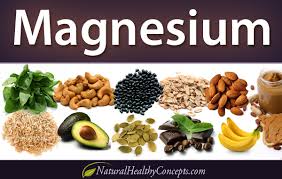



 Seventeen years ago my mom was diagnosed with breast cancer. That was a crazy reality for my family at the time because she was a gym teacher, swim instructor and an active mom who looked healthy. How could someone so active end up with cancer at 40? I was thirteen years old and remember asking myself this question, but having no answer.
Seventeen years ago my mom was diagnosed with breast cancer. That was a crazy reality for my family at the time because she was a gym teacher, swim instructor and an active mom who looked healthy. How could someone so active end up with cancer at 40? I was thirteen years old and remember asking myself this question, but having no answer.
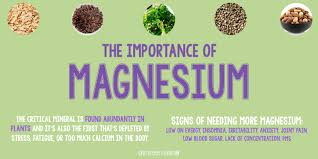

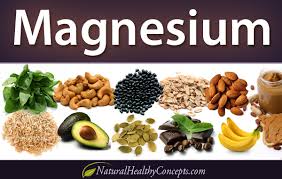 More than 1,200 participants were involved in the Genetics of Atherosclerotic Disease study, which included Mexican men and women between the ages of 30 and 75 years. Subjects included in the current investigation were limited to those without cardiovascular disease or family history of premature coronary heart disease. Blood sample analysis provided data concerning serum magnesium and other values, and computed tomography examination assessed coronary artery calcium (CAC).
More than 1,200 participants were involved in the Genetics of Atherosclerotic Disease study, which included Mexican men and women between the ages of 30 and 75 years. Subjects included in the current investigation were limited to those without cardiovascular disease or family history of premature coronary heart disease. Blood sample analysis provided data concerning serum magnesium and other values, and computed tomography examination assessed coronary artery calcium (CAC).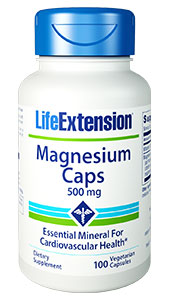

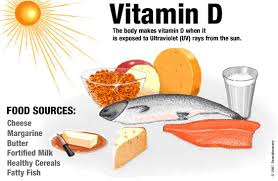
 There are some groups of people that are more likely to have vitamin D deficiency. The following people are more likely to be lacking in vitamin D:
There are some groups of people that are more likely to have vitamin D deficiency. The following people are more likely to be lacking in vitamin D:
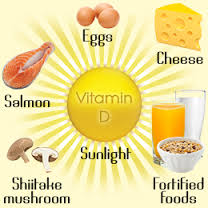 Editor’s Note:
Editor’s Note: 
 things don’t go as planned. When weight-loss becomes an obsession, it can lead to heightened cravings, or even a defeatist mentality if things get too tough. That’s when it’s a signal that you may need to slow things down a bit. The trick to get dieting to be more effective is to have it as a normal part of your everyday life. Implementing the right food decisions to be part of your overall lifestyle instead of a temporary period can keep away those hidden calories from adding up to your weight (Zelman 2008).
things don’t go as planned. When weight-loss becomes an obsession, it can lead to heightened cravings, or even a defeatist mentality if things get too tough. That’s when it’s a signal that you may need to slow things down a bit. The trick to get dieting to be more effective is to have it as a normal part of your everyday life. Implementing the right food decisions to be part of your overall lifestyle instead of a temporary period can keep away those hidden calories from adding up to your weight (Zelman 2008).  Speaking of eating less, one common belief is that the less food we eat, the less weight we would gain. However, it’s not always that simple. Research on those who skip breakfast showed they weighed more than those who eat said breakfast. That’s because those who eat less than three meals a day wind up consuming even more calories when they do eat. Be sure to have a breakfast that has protein and fiber (an egg, whole wheat toast, etc.) which will help keep you full until lunch (Zelman 2008).
Speaking of eating less, one common belief is that the less food we eat, the less weight we would gain. However, it’s not always that simple. Research on those who skip breakfast showed they weighed more than those who eat said breakfast. That’s because those who eat less than three meals a day wind up consuming even more calories when they do eat. Be sure to have a breakfast that has protein and fiber (an egg, whole wheat toast, etc.) which will help keep you full until lunch (Zelman 2008).  verages consists of alcohol, smoothies, or sodas, you can be unwittingly gaining more weight. A study on Americans detailed how most citizens can consume around 21% of their calorie intake through beverages alone. The issue here is that while beverages can satiate thirst, they don’t always affect hunger. Thus, you could be getting more than you bargained for. Exchange the latte for a cool glass of water instead, the coffee with cream for some skim milk, or the smoothie for 100% fruit juice. When it comes to alcohol, be sure to drink in moderation, or cut it out of your diet altogether (Zelman 2008).
verages consists of alcohol, smoothies, or sodas, you can be unwittingly gaining more weight. A study on Americans detailed how most citizens can consume around 21% of their calorie intake through beverages alone. The issue here is that while beverages can satiate thirst, they don’t always affect hunger. Thus, you could be getting more than you bargained for. Exchange the latte for a cool glass of water instead, the coffee with cream for some skim milk, or the smoothie for 100% fruit juice. When it comes to alcohol, be sure to drink in moderation, or cut it out of your diet altogether (Zelman 2008).  may sometimes be forcing yourself to eat every last bite. This here is another way that calories can slip through. Try to leave some of the big portions behind on that plate, and save it for another day. Or, if you can’t stand not having a clean plate, use smaller plates and bowls for your meals. You’ll consume less calories, but you won’t go hungry afterwards, and you won’t test the limits of your fullness either (Zelman 2008).
may sometimes be forcing yourself to eat every last bite. This here is another way that calories can slip through. Try to leave some of the big portions behind on that plate, and save it for another day. Or, if you can’t stand not having a clean plate, use smaller plates and bowls for your meals. You’ll consume less calories, but you won’t go hungry afterwards, and you won’t test the limits of your fullness either (Zelman 2008).  Most of all, it’s important to have moderation in your meals. While something you eat may not pack on the gut, it might not help you lose it either. That’s why it’s vital to practice appropriate eating habits to keep your figure. Fruits, while containing fiber, also has high fructose sugar, and should be eaten in conjunction with vegetables. (Rousell). The same could be said for most of the food groups. From protein, to salt, to carbohydrates—your diet needs to be made up of variety. Together with both daily exercising and a good night’s sleep, you can keep your diet on track and make it an intrinsic part of your life.
Most of all, it’s important to have moderation in your meals. While something you eat may not pack on the gut, it might not help you lose it either. That’s why it’s vital to practice appropriate eating habits to keep your figure. Fruits, while containing fiber, also has high fructose sugar, and should be eaten in conjunction with vegetables. (Rousell). The same could be said for most of the food groups. From protein, to salt, to carbohydrates—your diet needs to be made up of variety. Together with both daily exercising and a good night’s sleep, you can keep your diet on track and make it an intrinsic part of your life.